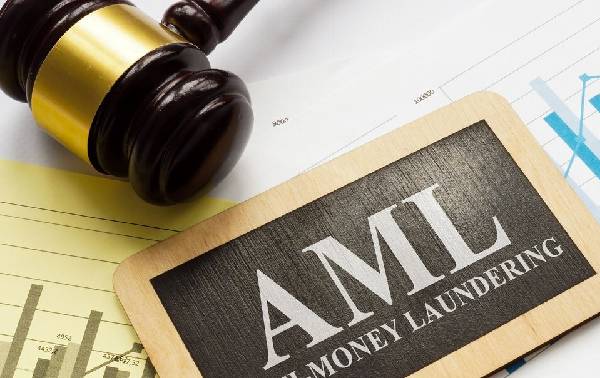AML and CFT regulations
The UAE’s gradual ascension towards becoming one of the leading countries in trade, commerce and the movement of capital increased the threat of the commission of financial crimes in the UAE. Taking into consideration such risks, the Emirati legislator attributed serious attention to legislation that counters money laundry, financing of terrorism and financing of illegal organizations. The following was elaborated and curated gradually to effectively hinder any attempts of money laundering, financing of terrorism and illegal organizations within the Emirati territory.
Steps taken by the Emirati legislator regarding AML and CFT regulations
Legislations that criminalize the possession or concealment of funds resulting from criminally prohibited acts existed in the Penal law issued in 1987, yet the combat against money laundry necessitated legislation dedicated solely to the matter, therefore the Emirati legislator created the first legislation that criminalizes money laundering in 2002 and the following was amended in 2014. Ever since, federal law no.(4) issued in 2002 played a pivotal role in the combat against money laundering, the financing of terrorism and the financing of illegal organizations.
In 2018, the law dating to 2002 and amended in 2014 has been replaced. The Emirati legislator has unified the special procedures to counter money laundering and the financing of terrorism by applying a unified legal framework to counter money laundering and the financing of terrorism in all Emirates, Free trade zones and Free financial zones in the UAE and the following has been put in place as per the Cabinet resolution no. (10) issued in 2019 concerning the Executive Regulations of Federal Decree law No.(20) of 2018 on Anti- Money Laundering and Combatting the Financing of Terrorism and Illegal Organizations.
The current laws combatting Anti-money laundering and the Financing of terrorism cover the recommendations issued in the years 2012 and 2013 by the Financial Action Task Force (FATF) an inter-governmental organization whose objective is to counter money laundering and the financing of terrorism globally by setting international standards that adherent countries need to follow to participate successfully and proactively in the combat against money laundering and the financing of terrorism on a global scope.
The objectives of the legislation:
- Effectively counter Money Laundering, the Financing of Terrorism, and Illegal organizations
- Create a legal framework that enhances the efforts made by authorities in the UAE involved in the combat against Money Laundering and crimes in relation to it.
Definitions of Money-Laundering, the Financing of Terrorism, and Illegal Organizations:
Money-Laundering crime definition:
According to the Decree-Law one is considered a perpetrator of money laundering if they commit the
following acts:
- Being knowledgeable of the fact that the funds proceed with a felony or a
misdemeanour. - Willfully commits any of the following acts:
- Transferring or moving proceeds
- Conducting any transaction with the aim of concealing or disguising their illegal
source - Acquiring possessing or using proceeds upon receipt
- Assisting the perpetrator of the offense to escape punishment.
2-The crime of Money Laundering is considered as an independent crime. The punishment of the
perpetrator for the predicate offence shall not prevent his punishment for the crime of Money
Laundering.
3- Proving the illicit source of the proceeds should not constitute a prerequisite to sentencing the
perpetrator of the predicate offence.
Money-Laundering crime punishment:
As per the Decree-Law any person who commits or attempts to commit any of the aforementioned acts:
-
- Shall be sentenced to imprisonment for a period not exceeding ten years and to a fine of no less than (100,000) AED one hundred thousand and not exceeding (5,000,000) AED five Million or either one of these two penalties.
- A temporary imprisonment and a fine of no less than AED 300,000 (three hundred
thousand dirham) and no more than AED 10,000,000 (ten million dirham) shall be applied
if the perpetrator of a money laundering crime commits any of the following acts:
a) If he abuses his influence or the power granted to him by his profession or professional
activities.
b) If the crime is committed through a non-profit organization.c) If the crime is committed through an organized crime group.
d) In case of Recidivism
In addition, the Decree-Law stipulates that an attempt to commit a money laundering offense shall be punishable by the full penalty prescribed for it.
Definition of the Financing of Terrorism crime
According to the Decree-Law one is found guilty of Financing of Terrorism if they intentionally commit the following acts:
- Being knowledgeable that the proceeds are wholly or partly owned by a terrorist organization or a terrorist person.
- Intended to finance a terrorist organization, a terrorist person or a terrorism crime, even if it without the intention to conceal or disguise their illicit origin.
- Providing, collecting, or preparing or obtaining proceeds or facilitating their obtainment by others with intent to use them or while knowing that such proceeds will be used in whole or in part for the commitment of a terrorist offense or if he has committed such acts on behalf of a terrorist organization or a terrorist person while aware of their true background or purpose.
Financing of Terrorism crime punishment:
The punishment of Financing of Terrorism as per the Decree-Law is A life imprisonment sanction or temporary imprisonment of no less than (10) ten years and penalty of no less than AED 300,000 (three hundred thousand dirham) and no more than AED 10,000,000 (ten million dirham) is applied to anyone who uses Proceeds for terrorist financing.
Definition of the Financing of Illegal organizations crime:
According to the Decree-law is found guilty of financing of illegal organizations if they the commit the following acts:
- If he is aware that the proceeds are wholly or partly owned by an illegal organization or by any person belonging to an illegal organization or intended to finance such illegal organization or any person belonging to it, even if without the intention to conceal or disguise their illicit origin.
- Providing, collecting, preparing, obtaining Proceeds or facilitating their obtainment by others with intent to use such proceeds, or while knowing that such proceeds will be used in whole or in part for the benefit of an Illegal organization or of any of its members, with knowledge of its true identity or purpose.
Financing illegal organizations punishment
As per the Decree-Law the punishment of financing illegal organizations is a temporary imprisonment sanction and a penalty of no less than AED 300,000 (three hundred thousand dirham) shall be applicable to anyone who uses the Proceeds in financing illegal organizations.
The Decree-Law as well specifies that The Court may commute or exempt from the sentence imposed on the offenders if they provide the judicialor administrative authorities with information relating to any of the offenses punishable in this article, whenthis leads to the disclosure, prosecution, or arrest of the perpetrators.
Common financial crimes penalties:
The following stipulations apply to all the financial crimes within the Decree-Law:
1- A penalty of no less than AED 500,000 (five hundred thousand) and no more than AED 50,000,000 (fifty
million dirham) shall apply to any legal person whose representatives or managers or agents commit for its account or its name any of the crimes mentioned in this Decree-Law.
2- If the legal person is convicted with terrorism financing crime, the court will order its dissolution and closure of its offices where its activity is performed.
3- Upon issuance of the indictment, the court shall order the publishing of a summary of the judgment by the appropriate means at the expense of condemned party.
Imprisonment and a fine of no less than AED 100,000 (one hundred thousand) and no more than AED 1,000,000(One million dirham) or any of those two sanctions is applied to anyone who violates on purpose or by grossnegligence the provision Article (15) of this Decree Law.
Imprisonment for no less than six months and a penalty of no less than AED 100,000 (one hundred thousand dirham) and no more than AED 500,000 (five hundred thousand dirham) or any of these two sanctions shall apply to anyone who notifies or warns a person or reveals any transaction under review in relation to suspicious transactions or being investigated by the competent authorities.
As the UAE takes its role in combatting financial crimes seriously, specialized authorities have the role of taking preventive measures and ensure the application of the legislation to effectively hinder financial crimes in the UAE.The most important in the matter is the Financial Intelligence Unit (FIU).
The Financial Intelligence Unit (FIU)
The Decree-Law in order to effectively prevent the commission of financial crimes in its territory has attributed to the Central Bank of the UAE (CBUAE) the task of creating an independent authority under the name of “Financial Intelligence Unit”, the following authority has for a role the receipt of suspicious transaction reports, information on all financial institutions and designated nonfinancial businesses (DNFBs) and professions shall be sent exclusively for consideration, analysis and referral to competent authorities either automatically or upon request.
Extension of the obligations to the DNFBs
The extension of legal obligations to DNFBs is the result of the development of the current contemporary financial system and financial activities, the following has attributed more importance to non-financial sectors. As a result, in the past recent years the FATF has taken this menace into consideration by issuing various recommendations related to the matter. The following create obligations for the DNFBs that requires the need of the implementation of preventive measures that will eventually hinder any activities characterized as money-laundering, financing of terrorism and illegal organizations of being committed. The DNFBs incase if they are presented by risks need to immediately identify, assess, and implement preventive measures tostop any crimes of being committed through them.
In addition, a key requirement imposed by the recommendations of the FATF on Financial Institutions and DNFBPs is performing what is labelled as Customer Due Diligence (CDD) with new clients. The CDD consists of the receipt of different information from the new client to clearly identify them, for instance whether they are an individual or an entity and the information requested mostly revolves around key elements that would pose eventual risks. The FIs and the DNFBs are as well required to maintain a record in which alltheir carried-out transactions with clients are listed and make sure that the following information is ready to be shared if demanded by competent authorities in the case of an investigation. In addition, FIs and DNFBs must immediately report the occurrence of any suspicious transactions.
However, as the FIs were already subjected to strict regulations, perpetrators of financial crimes have opted to DNFBs to proceed with their illegal activities. As a result, the UAE has taken the required legal actions and extended certain number of obligations present in the Decree-Law No. (20) of 2018 on Anti-Money Laundering and Combating the Financing of Terrorism and Illegal Organizations with the objective of hindering the illicit flow of funds through them.
As a response, in March 2020 the Ministry of Economy of the UAE has issued a circular related to the AML/CFT regulations of DNFBs, the following was done in order to take into consideration of the FATF’s recommendation addressed to the UAE within the UAE Mutual Evaluation Report (MER) that has been published by the FATF illustrating the observations that it has been able to gather as of the on-site evaluation it has made regarding the respect and effective application of its legislation.
The FATF as per the MER urged the UAE given its status as one of the leading international global and financial centers to impose obligations on DNFBs as it is facing major risks as of it’s important presence in financial, economic, corporate and trade activities and its status as one of the leading countries in oil, diamond and gold exports, and given its location geographically between countries that pose elevated threat in addition to its free zones both financial and commercial.
Article 3 of Cabinet Resolution No. (10) of 2019 Concerning the Implementation of the AML Law (Implementing Regulations) defines DNFBs and their scope of activity.
As per the implementing regulations activities involving DNFBs encompass:
- The sale and purchase of real estate
- Dealers in precious metals and precious stones
- Trust and company service providers
- Auditors
- Accounting service providers and lawyers
FIs and DNFBs are two distinct actors each vested with different scope of activities, yet they share certain similarities, the principal is that they both carry out financial transactions for the benefit of their clients and the following is usually used to not shed the light on the real end beneficiaries or the real source of the funds.
DNFBs can be used a tool to facilitate money-laundering, financing of terrorism and illegal organizations and overall result in negative repercussions in the financial system on an international level and encourage the persistence of financial crimes. For instance, a DNFB actor such as precious stones dealers could possibly participate in money laundering by conducting a transaction that involves the sale of precious stones to a criminal who has acquired his funds illicitly.
As the following poses great risks in the combat against financial crimes, the UAE took the necessary measures to counter such activities.
Obligations posed on DNFBs in Emirati Law:
The Circular has extended the application of the Federal AML Law No. (20) 2018 and its executive regulations on DNFBs.However, the most crucial obligation that DNFBs must abide to is the reporting of any suspicious transactions (STR) to competent supervisory authorities for the latter to detect any potential risks and implement effective preventive measures accordingly. The following however does not apply to professions that are needed to legally respect confidentiality such as lawyers and notaries.
The Decree-Law as well lists several other obligations of DNFBs and FIs:
a) Identify the crime risks within its scope of work as well as continuously assess, document, and update such assessment based on the various risk factors established in the Implementing Regulation of this Decree-Law and maintain a risk identification and assessment analysis with its supporting data to be provided to the Supervisory Authority upon request.
b) Take the necessary due diligence measures and procedures and define their scope, taking into account thevarious risk factors and the results of the national risk assessment and retain the records received during the implementation of this process. The Implementing Regulation of the present Decree-Law shall specify. the cases in which such procedures and measures are applied, and the conditions for deferring the completion of customer or real beneficiary identity verification.
c) Refrain from opening or conducting any financial or commercial transaction under an anonymous or fictitious name or by pseudonym or number and maintaining a relationship or providing any services to it.
d) Develop internal policies, controls and procedures approved by senior management to enable them to manage the risks identified and mitigate them, and to review and update them continuously, and apply this to all subsidiaries and affiliates in which they hold a majority stake; the Implementing Regulations of this. Decree-Law shall specify what should be included in said policies, controls and procedures.
e) Prompt application of the directives when issued by the competent authorities in the state for implementing the decisions issued by the UN Security Council under Chapter (7) of UN Convention for the Prohibition and Suppression of the Financing of Terrorism and Proliferation of weapons of mass destruction, and other related directives. Maintain all records, documents, and data for all transactions, whether local or international, and make this information available to the competent authorities promptly upon request, as stipulated in the Implementing. Regulation of this Decree-Law.
g) Any other obligations stipulated in the Implementing Regulation of this Decree-Law.
Penalties in case of breach FIs and DNFBs of their obligations
As per the Decree-Law FIs and DNFBs are subjected to the following in case of breach to their legal obligations:
1- The Supervisory authority shall impose the following administrative penalties on the financial institutions, designated nonfinancial businesses and professions and non-profit organisations in case they violate the present Decree-Law and its Implementing Regulation:
a) Warning
b) administrative penalties of no less than AED 50,000 (fifty thousand dirham) and no more than AED 5,000,000 (five million dirham) for each violation.
c) Banning the violator from working in the sector related to the violation for the period determined by the supervisory authority.
d) Constraining the powers of the Board of Directors, supervisory or executive management members, managers or owners who are proven to be responsible of the violation including the appointment of temporary inspector.
e) Suspending Managers, Board of Directors, and supervisory and executive management members who are proven to be responsible of the violation for a period to be determined by the Supervisory Authority or request their removal.
f) Suspend or restrict the activity or the profession for a period to be determined by the supervisory authority
g) Cancel the License.
The content of this article should not be taken as legal consultation. In case you are involved in any problems related to the following subject or have any queries, Hassan Al Reyami Advocates and legal consultants would be delighted to address your concerns during a 30-minute free legal consultation session offered to you.




